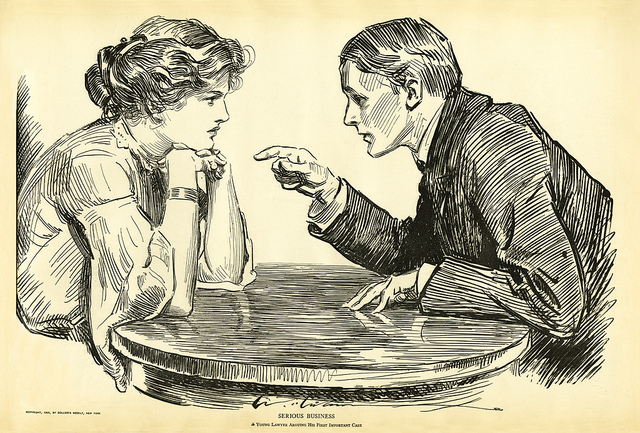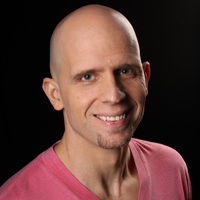
We live in a world where treatment of women still falls short of fair and principled.
And no, I did not stay in a Holiday Inn Express last night. I just have two eyes and two ears.
As a man in this country, I have never had someone touch me inappropriately because they knew that they were physically stronger or in a position of more power.
As a man in the workplace, I have never had to walk into a meeting wondering how many good ideas it would take before someone decided I was not there to be their eye candy.
As a senior executive for more than 10 years now, I have seen discrimination and sexism at the highest organizational levels.
As a brother to a sister, I have witnessed a 37-year-old man go to prison for three months for sexually assaulting her when she was just eight.
There are differences being made, largely because of the courage and tenacity of everyday people that have started massive and necessary movements such as #TimesUp and #MeToo. Culture change requires such movements.
A lot of you reading this have likely heard about the John Oliver interview with Dustin Hoffman. The short of it is that John Oliver queried Dustin Hoffman about the allegations of sexual misconduct that came out against him. During the course of the discussion, Oliver told Hoffman that he believed the allegations. When Dustin asked why, John responded, “Because she has no reason to lie.”
Last week, I was teaching a diversity and inclusion facilitation class. One of the instructor techniques I use is to show pictures that elicit responses and draw out potential bias. After all, if my students are going to eventually facilitate, they must be able to do so from a neutral posture.
Speaking of, before showing the pictures, I always tell the students that I will offer no commentary of my own. One of the pictures I showed was of Dustin Hoffman and John Oliver. During the course of the discussions, one of the students noted that she believes Dustin Hoffman’s accuser. When one of the other students asked her why, she noted, “because I’ve been sexually assaulted.”
Now, let’s speak plainly. Women deserve to live their life without being eye-f*cked, cat called, assaulted, harassed, or anything in between. These are cowardly, inhumane, and sexist acts. Women do not often come forward when they are sexually harassed and assaulted. As the old TLC song goes, “baby, that’s actual and factual.” When women do come forward, they are often retaliated against, directly or indirectly. Just stating the obvious.
And still, questions remain.
What are we to do in a society where women are coming forward with allegations of sexual misconduct and men are denying them? Taking it a step further, what are we to do when everyday people are making statements like, “He should never be able to make another movie,” and, “Not so fast, isn’t he innocent until proven guilty?” What kind of conversations are we to have? What kind are we allowed to have?
In the classroom experience I noted above, a fellow student asked the woman who had been sexually assaulted if she found it fair to assume that someone was guilty of sexual misconduct because she herself had been sexually assaulted. Her response was, “It is fair, because women should not have to face being raped.” Another student asked me what I thought about Oliver pegging Hoffman as guilty for the “subjective reason that she had no reason to lie?” Neutrality being a must in this training, I did not answer.
I have heard dialogues similar to these at other sessions I have done. As well, I have read thousands of threads in the comments sections of #MeToo articles. There are men who second guess the allegations due to the time lapse between the occurrence and when the women decided to come forward. There are women claiming that men are disputing or discrediting the allegations because they don’t really want women to have a voice. There are men claiming that women going into hotel rooms of rich men are naïve for not understanding the men’s intent. To put it simply, we are saying a lot, and it is dividing us.
Let me ask the questions again: what are we to do in a society where women are coming forward with allegations of sexual misconduct and men are denying them? What kinds of conversations are we to have? What kinds are we allowed to have?
The students who asked the questions were verbally attacked by a majority of their classroom peers. As a matter of context, they offered no judgment or opinion on Dustin Hoffman’s innocence or guilt, just questions about how people determined said innocence or guilt. When one of the students tried to defend themselves against the onslaught from their peers, another student said, with a dash of sarcasm, “Oh, you poor white male. It must suck to be you.”
A few months back, Emily Lindin tweeted, “Here’s an unpopular opinion. I’m actually not at all concerned about innocent men losing their jobs over false sexual assault/harassment allegations. Sorry. If some innocent men’s reputation have to take a hit in the process of undoing the patriarchy, that is a price I am absolutely willing to pay.”
To ask a shorter version of my previous questions, how is someone supposed to respond to that?
Clearly, women have had enough. Sexual misconduct is a sensitive and serious topic that we are addressing way too late. But how are we addressing it, and who is the we? We know that people are talking, and we know that dissenting views are present. From one lens, I could be making way too much of this. After all, movements have always created healthy strain and discomfort.
Except, I have facilitated over 1,000 diversity and inclusion conversations, and here I write.
Men blame women for binning all men as guilty for the sake of believing all women’s allegations. Women blame men for being blind to their long-standing struggle for equality and fair treatment. Men note that we live under a justice system that assumes people are innocent until proven guilty. Women note that the justice system has long failed women. Men go silent out of fear of being labeled insensitive or out of touch. Women go louder to ensure that their long-silenced voices will be silent no more.
As the venerable Tevin Campbell once sang, “Can we talk?” The fact is, we must. If we don’t, the movement will continue to divide us just as we are harnessing it to bring us closer together. To this point, I have heard some men say that they are having a hard time supporting a cause where “women’s rage has made them see all men as the problem.” In reverse, I have heard some women say that they “do not need men to solve a problem that men have been ignoring for hundreds of years.”
I will end this article with yet another 90s R&B reference. “What I need from you is understanding/ How can we communicate/ If you don’t hear what I say.” Xscape sang these lyrics some 20+ years ago, and it still rings true today. I love music; it is my center. What I love more, however, is watching a plan come together, especially if it serves to bring people closer together. What I see, however, is chaos walking.
Let’s not waste a movement by minimizing, generalizing, and alienating each other. Especially when there are real monsters we must slay in the name of justice and equality.
~
~
~
Author: Chris Armstrong
Image: Flickr/MCAD Library
Editor: Travis May
Copy Editor: Yoli Ramazzina


 Share on bsky
Share on bsky




Read 1 comment and reply